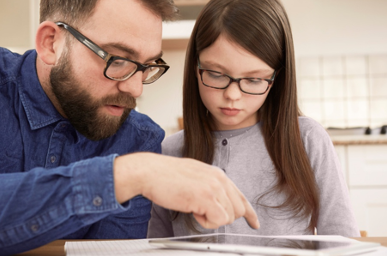Primary Times - the definitive what’s on and where to go family guide of activities and events for children of primary school age. Things to do with your kids during the school holidays including arts and craft activities, music and theatre for children, parties, competitions, days out, and family attractions along with term time drama schools, dance classes, after school clubs and sports activities. Things to do at a place near you!
Experts Urge First Eye Test Before Your Child Starts School
 Whether your child has just stepped into the classroom for the first time or moved up a year, now is the perfect moment to book their sight test. Experts recommend children have their first eye test at age 3 or 4– ideally before they start primary school – even if there are no outward signs of a problem. This early check can spot and address issues before they begin to affect learning, development, and confidence.
Whether your child has just stepped into the classroom for the first time or moved up a year, now is the perfect moment to book their sight test. Experts recommend children have their first eye test at age 3 or 4– ideally before they start primary school – even if there are no outward signs of a problem. This early check can spot and address issues before they begin to affect learning, development, and confidence.
If your child hasn’t yet had an eye test, don’t worry – it’s never too late to start. In the UK, NHS sight tests are free for all children under 16, making it simple and affordable to prioritise eye health.
Recent research shows many parents are unsure about when to arrange their child’s first test. In fact, 9% said they would only book one if there was a problem, and 18% wait until their child is at least five. Denise Voon, Clinical Adviser at The College of Optometrists, explains: “Taking children for regular eye tests from the age of 3–4 years old every 1–2 years… is critical for checking children’s vision and eye health.”
The reason for testing early is clear: children’s eye problems are not always obvious. Conditions like short-sightedness (myopia), ‘lazy’ eye (amblyopia), and squints (strabismus) can develop without symptoms your child might notice or mention. Sometimes the first signs are subtle changes in behaviour – sitting closer to the TV, holding books nearer, or avoiding certain activities. An eye examination can also detect rare but serious conditions, such as certain eye cancers. The sooner an issue is identified, the more effective treatment can be.
Myopia is particularly common and on the rise worldwide. It causes distant objects to appear blurred, which can make it harder for children to see the board at school or join in confidently with sports and games. Left unchecked, it usually worsens over time, raising the risk of serious eye conditions later in life.
The good news is there are ways to help slow its progression. One of the most advanced options is MiYOSMART – a special spectacle lens clinically proven to slow myopia progression by around 60% on average1, helping preserve more of a child’s natural vision.
Sight tests are quick, painless, and often enjoyable for children. Many opticians offer after-school or weekend appointments, so it’s easy to fit them in. If glasses or specialist lenses like MiYOSMART are needed, your optician will guide you through the best options for your child’s needs and comfort.
Even if the new term has already begun, it’s never too late to make eye health part of your family routine. A simple, free eye test could make all the difference to how your child sees the world – now and in the years to come.
Find your nearest MiYOSMART accredited optician at: www.hoyavision.com/uk/find-optician/
1Lam CSY, Tang WC, Tse DY, Lee RPK, Chun RKM, Hasegawa K, Qi H, Hatanaka T, To CH. Defocus Incorporated Multiple Segments (DIMS) spectacle lenses slow myopia progression: a 2-year randomized clinical trial. British Journal of Ophthalmology. Published Online First: 29 May 2019. doi: 10.1136/ bjophthalmol-2018-313739




